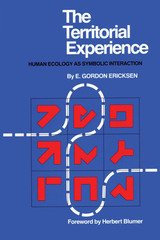
Balancing essays on Herbert Blumer with Blumer's own writings on race relations, labor and management conflict, urbanization, and popular culture, this volume--originally published as Social Order and the Public Philosophy--establishes Blumer's thought as a basis for a public policy that remains faithful to the essential character of human life in a permanently pluralized and segmented society.
Stanford M. Lyman and Arthur J. Vidich situate Blumer's ideas in the context of earlier public philosophers, such as William Graham Sumner, Herbert Croly, and Walter Lippmann. They consider the implications of Blumer's works for America's most pressing social issues and propose a sophisticated civic sociology of their own based on his studies and methods. Their new afterword affirms the rich harvest Blumer's philosophy continues to yield for postmodern society.

During the 1920s, the Chicago school of sociology developed an ecological orientation toward the study of the city. At the same time, other Chicago scholars developed the social psychological approach that was to be named symbolic interactionism. Over fifty years later, Gordon Ericksen examines the best of these two schools to present a revisionist human ecology. In The Territorial Experience, he gives us a fresh perspective on human ecology by reconstructing the discipline in a way that genuinely reflects the realities of our territorial life.
Ericksen's symbolic interactionist approach to the spatial world is based on the appreciation of humans as the creative artists they are, as designers and builders of their environment. Exploring the symbolic meanings attached to space and territory, he challenges the orthodox in human ecology by introducing hypotheses and conceptual tools of analysis which link spatial facts to human motivations and meanings. With people living in a habitat which they have largely shaped for themselves—a world of airports, shopping malls, retirement villages, where human spaces convey human messages—Ericksen demands that we examine what we have done with our environment in order to survive and prosper.
This major contribution to human ecology will be of importance to specialists and lay readers in the fields of sociology, social psychology, geography, city and regional planning, urban affairs, and economics. Showing how humankind speaks in and through its physical setting, The Territorial Experience is a bench mark in communications theory.
READERS
Browse our collection.
PUBLISHERS
See BiblioVault's publisher services.
STUDENT SERVICES
Files for college accessibility offices.
UChicago Accessibility Resources
home | accessibility | search | about | contact us
BiblioVault ® 2001 - 2025
The University of Chicago Press









